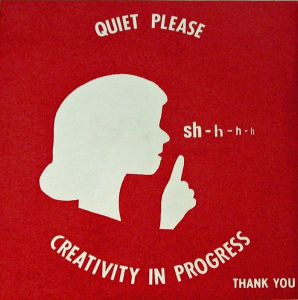 The historian and the physicist, the astronomer and the palaeontologist no doubt see their academic and professional discipline at the core of what it means to be human. The 'zen' of life and existence.
The historian and the physicist, the astronomer and the palaeontologist no doubt see their academic and professional discipline at the core of what it means to be human. The 'zen' of life and existence.
Our species dominance can be attributed to such things – our ability to assimilate knowledge, process it, communicate meaningfully about it and always advance through challenging the accepted norms. Where this intellectual power coincided with need and determination, we've succeeded to create a world that is barely believable now.
Some would claim marketing and communications to be close to the Zen Buddisim of life. While its tenets are about human behaviour and strategic intent, its stock-and-trade is perhaps the most important of human traits; to build relationships through communication.
But as is the case with any discipline, the protagonists are too often generally valued only by 'what they know and understand'. We see it in the articles and papers of academics – how often are they published – and increasingly in online musings.
Now it seems that what we know and discover is also important in developing fresh ideas. Innovation and generating new ideas are our insatiable need and we devour the next steps in progress.
But according to an article by William Duggan in the Strategy+Business website www.strategy-business.com we've apparently had the formalised methods for making useful ideas completely wrong for a long time. In How Aha! Really Happens, Duggan describes how, through our ability to draw on our experiences and what he calls "intelligent memory", we generate ideas more productively than we can through the apparently fanciful methods brought on by notions of right brain and left brain.
All of this new understanding challenges the old formalised 'brainstorming' techniques which assume that we innovate best by locking ourselves in a room and engaging our right brains (the creative side) until we cracked the problem.
A further article in the same website, Making change happen and making it stick, proposes that we should also rethink how we make organisational and personal change.
Both of these articles illustrate to me how addicted we are to what we know and what gives us security. But we are also driven by more expansive and pioneering impulses, which can cause discomfort. The good news appears to be that we should use our experiences and knowledge, not merely to give us security and comfort, but also to break new ground.
Related items
BLOG POST: Stop trying to sell and start a relationship
BLOG POST: Communicate for freedom
BLOG POST: If you're communicating, first have an idea
BLOG POST: A case for innovation and ideas in everything
BLOG POST: Why genuine creative thinking beats group thinking
Author connections: facebook.com/frasercarson2 www.fresco.co.nz wwwflightdec.com
![]() Fraser Carson is a thinker, problem solver, innovator and commentator. He has particular experience and interest in marketing, communications and social media. In 2012 he launched Flightdec.com, a radical new concept to build online communities.
Fraser Carson is a thinker, problem solver, innovator and commentator. He has particular experience and interest in marketing, communications and social media. In 2012 he launched Flightdec.com, a radical new concept to build online communities.
